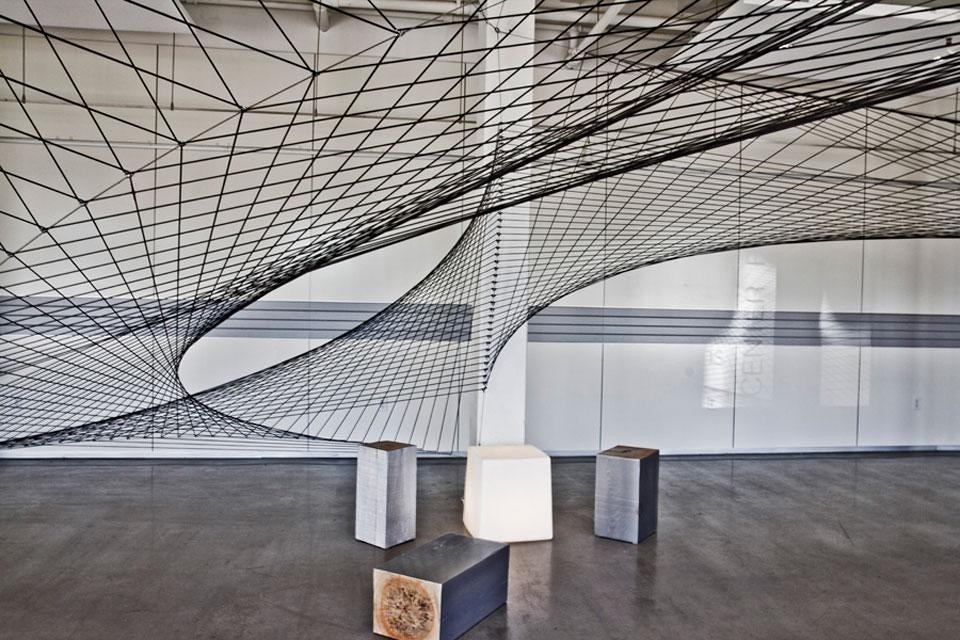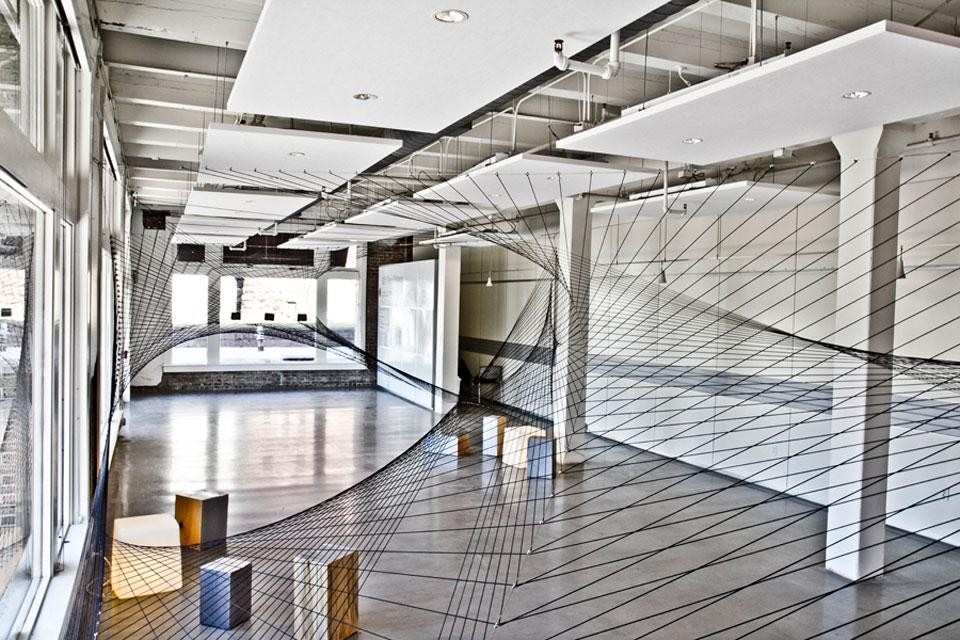Vector Knot is a temporary installation designed and constructed by Hiroshi Jacobs and Casey
Hughes at the New Orleans AIA Gallery for the 2011 DesCours, a free, public, architecture and art event that invites architects and artists to
create ten installations for the public. Vector Knot is the second iteration in a series
of studies on the relationship between dimensionality and flatness. The installation explores how lines can suggest surfaces
and how surfaces in turn can suggest volume and enclosure, offering an oscillating experience that is simultaneously
volume and line, spatial and flat.
Rather than an object to be looked at, the installation is intended to create an immersive spatial experience. The coexistence
of 1D, 2D, and 3D in Vector Knot offers an oscillating experience that is simultaneously volume and line, spatial and flat. The
perception of volume from a series of closely spaced lines is echoed in mathematics. The installation's spaces are composed
of doubly-ruled surfaces (hyperbolic paraboloids) — which by definition can be described by infinitely tangent lines in two
opposing directions. Space is only implied (through lines), leaving the creation of a sense of enclosure up to the viewer.
Vector Knot
At the AIA Gallery in New Orleans, Hiroshi Jacobs and Casey Hughes present an immersive spatial experience created with 1800 metres of black bungee cord.

View Article details
- 16 May 2012
- New Orleans

Vector Knot specifically studies the 3D spline curves that are created by the bungee connections to the wire guide cable. Conventionally a spline is a device for drawing complex curves. It consists of a long strip of flexible wood that is fixed at a number of vector knots (weighted points) to hold a smooth curve. The spacing, direction, and force of the bungee connections determines the curvature of the spline guide cable. The installation is composed is made up of 1800 metres of custom-made 3 millimetre black bungee cord and fixed in place by over 700 hardware connections.